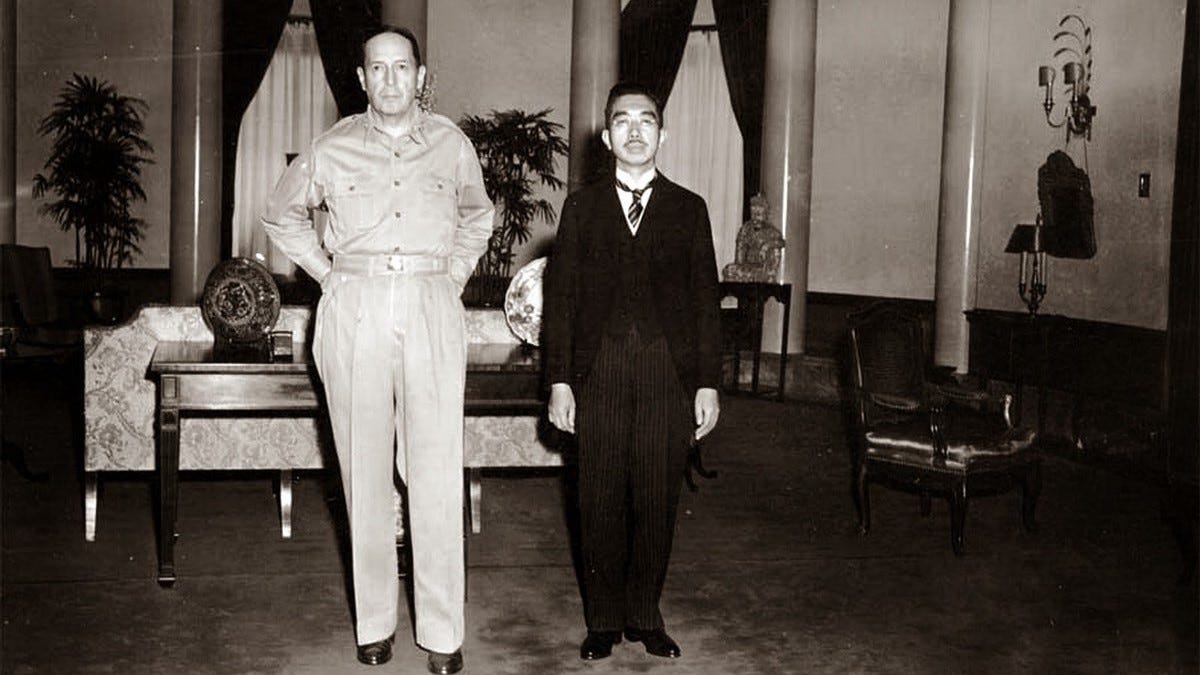When Demigods Die: MacArthur and the 1950 Chinese Intervention in Korea
Hubris and the intelligence consumer
“The emperor came to him, he didn’t go to the emperor.”
John Russell Allison served Gen. Douglas MacArthur as a civilian economic advisor in Tokyo from 1945-1951. In his unpublished memoir, Allison alludes to the famous photo of the general with Hirohito, noting that MacArthur “didn’t even dress up for the occasion. He’s in open collar, and the emperor …
Keep reading with a 7-day free trial
Subscribe to Polemology Positions to keep reading this post and get 7 days of free access to the full post archives.


